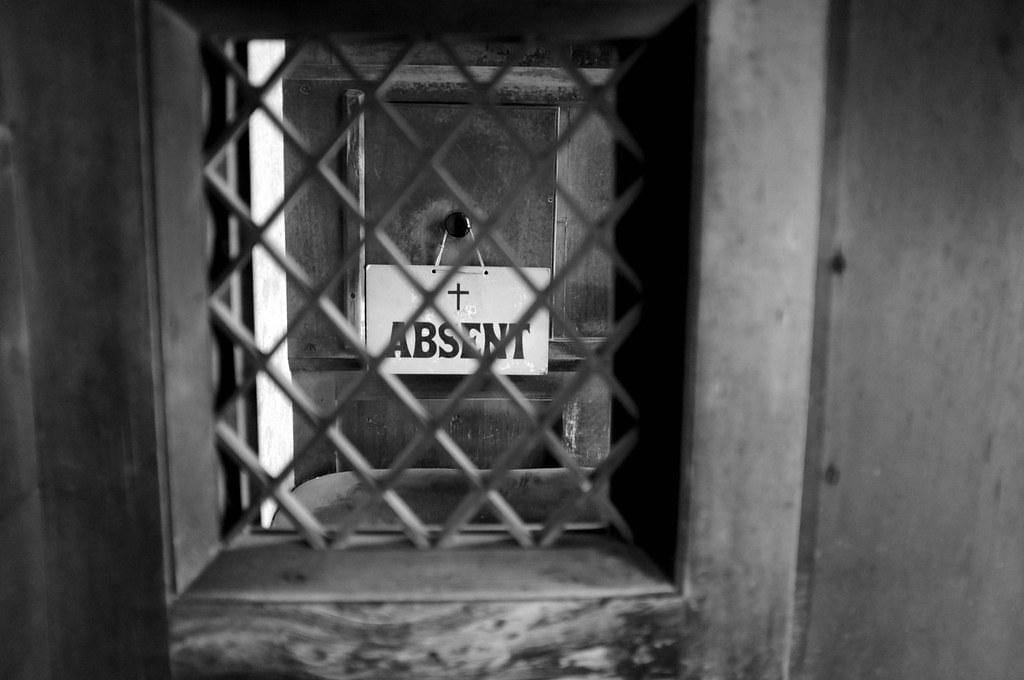
Human history is full of paradigm-shifting events. From time to time, something big will happen that alters the way we view the world. In the process of such change, our dominant cultural narrative gets a reboot.
For instance, consider the original shift humans made from hunter-gathering to an agricultural way of life. That was a big deal! You might even say civilization as we know it began the moment someone first put the food under lock-and-key. Some theologians even associate this event with the “fall” of humanity that is allegorized in Genesis 1-3.
More recent examples might include the Industrial Revolution, the moon landing, or the invention of the atomic bomb. In fact, some of you might have been around for those last two incidents. Can you recall what it was like to realize for the first time that humanity possessed not just the capacity but the technological means to destroy itself entirely?
In the aftermath of such paradigm-shifting events, our collective horizon is generally expanded. As a result, people begin to tell new stories about their place in the universe. Or, perhaps it’s more accurate to say that they begin to re-work their old stories in new, imaginative ways.
What exactly is a reboot?
You might be familiar with the Marvel Cinematic Universe, which has been blowing the lid off of box-office records left and right in recent years. After watching Avengers: End Game, which has now become the highest-grossing movie of all time, my son asked me whether I thought they would make any more Avengers movies. I assured him that they would sooner or later; if not in this line, then someone would reboot the series twenty years from now for the next generation.
In Hollywood, a reboot is what takes place when producers re-make a familiar story line with new actors and new twists on the original plot. This is the general idea behind what I mean when I say that our cultural narrative receives a reboot after paradigm-shifting events.
The reboot of a cultural narrative, however, is more than just redressing the old story with new actors and fresh cinematography; it is, essentially, a creative reformulation of how we understand our place in the universe.
When our view of the world changes, it comes out in our storytelling. In an effort to better understand the way we relate to God, the cosmos, and one another, we tell stories about how it all began and where it all may be leading. This is a purely human phenomenon that is consistent across cultures, as many anthropologists and historians of religion have pointed out. In the words of Ecclesiastes 3:11, it would seem that God has “planted eternity” in the hearts of human beings.
Or, as Anthony de Mello said, that “the shortest distance between truth and a human being is a story.”
The rise and fall of the Christian worldview
The advent of Jesus Christ into the world was one such reboot. Some people will even argue that the Christian Gospel brought about the most titanic shift in human consciousness yet to ripple across our little stream of human history.
Perhaps you recall the story from Luke 24 when Jesus appeared to two of his disciples on the road to Emmaus after his resurrection. It interests me to note the way he used their old cultural narrative to tell them a new story. Scripture says that as he walked them through the tales of Moses, the patriarchs, and the prophets, he re-interpreted those stories in relation to himself. In effect, he told them a story they had never heard before, though they had heard it a thousand times.
Jesus’ followers struggled to work out this new story out for many years to come. For instance, you might notice how certain Jewish disciples sought to re-frame their cultural understanding in the light of Christ when the writer of John’s Gospel took up the familiar line from Genesis 1 – “In the beginning” – and applied it to the Logos:
In the beginning was the Word, and the Word was with God, and the Word was God. He was in the beginning with God. All things were made through him, and without him was not anything made that was made. In him was life, and the life was the light of men (John 1:1-4).
Like it or not, this re-framing of the Jewish narrative in light of Christ set the cultural tone for the next 2,000 years of western civilization. Now, however, we’ve reached a point where that cultural framework is beginning to splinter and crack. As a result, the West is increasingly becoming a post-Christian society.
For a growing number of people, the old stories are no longer sufficient. Many of these folks are now cast adrift (spiritually and psychologically speaking) like the two disciples on the road to Emmaus. Having lost their former maps of meaning, they are walking along the road of life quite dazed and confused.
This dynamic underlies the trend we are seeing in many places toward declining church membership, attendance, and overall engagement with faith communities of any sort. And the hard truth of the matter which many Christians need to face is that there is no going back, either. Times have changed, and the only option is go forward.
Questions that demand answers
To reiterate: Every culture has its own dominant narrative that defines social expectations and informs the way people choose to live within it. This can be true even of sub-cultures.
My own hometown, for instance, is used to a certain cultural narrative. It’s the story of drug abuse, job loss, limited opportunities, high cancer rates, sex trafficking, governmental corruption, and irrelevant churches (over 150 of them in a county of only 75,000 people). For decades, the folks in my town have been held captive by feelings of hopelessness and helplessness.
But there are those who are beginning to tell a new story, each in their own way, that is giving people hope. Hope, after all, is just the ability to see a different future. And I believe the Church here, like anywhere else, is uniquely positioned to offer its community a new story — one they have never heard before though they have heard it a thousand times.
But for Christians, this process must begin at home. We have to start by telling ourselves a new story. We have to ask ourselves: Why are we here? Why do we shuffle in and out of the same building every week (assuming we do)? Is it merely to perform our cultural duty as Christians? To maintain fidelity to a dying tradition? To check off the box of our assumed obligation to God?
Or is it to re-kindle the flame of meaning in our hearts? To “stir one another up” to love and good works (Hebrews 10:24)? To cast vision of a new world that has risen from the ashes of its despair in the light of the resurrected Christ? These are the questions that demand our answers.
Telling the old story in new and living ways
It is time, then, for Christians to face this issue squarely. Given the continuing decline of Christianity across the western world, we must ask ourselves: Is the current situation a sunset or a sunrise? Do we desire — in vain — to go back to the way things once were, or are we willing to blaze a new path forward? Is this the end of the road, or is it a new beginning?
Personally, I’m convinced that the future of the Church lies outside the four walls and in the streets with suffering humanity. If this conviction makes me a “liberal” or “humanist,” then so be it. Jesus himself surely faced similar charges, and one could be in worse company.
Ultimately, I agree with Ivan Illich that neither revolution nor reformation can change a society. Rather,
You must tell a new powerful tale, one so persuasive that it sweeps away the old myths and becomes the preferred story, one so inclusive that it gathers all the bits of our past and our present into a coherent whole, one that even shines some light into our future so that we can take the next step… If you want to change a society, then you have to tell an alternative story.
Is that really so much to ask? Perhaps I wax too epic, but I’ll end with this:
The people of the West have the old story of the Christian Gospel. They know it well, but it’s dusty and in serious need of a reboot. It falls to those who care, therefore, to tell the old story of the Gospel in new and living ways — ways that reconnect our culture with the source of life. They must tell the Gospel as a story that transcends and includes everything to come before it. A story that illuminates the primal message and meaning of Christ-crucified in a way that causes people’s hearts to burn. A story that reconnects people with God, with history, with one another, with themselves, and with the Earth.
If such a story exists, one thing is certain: It will surely be good news.











